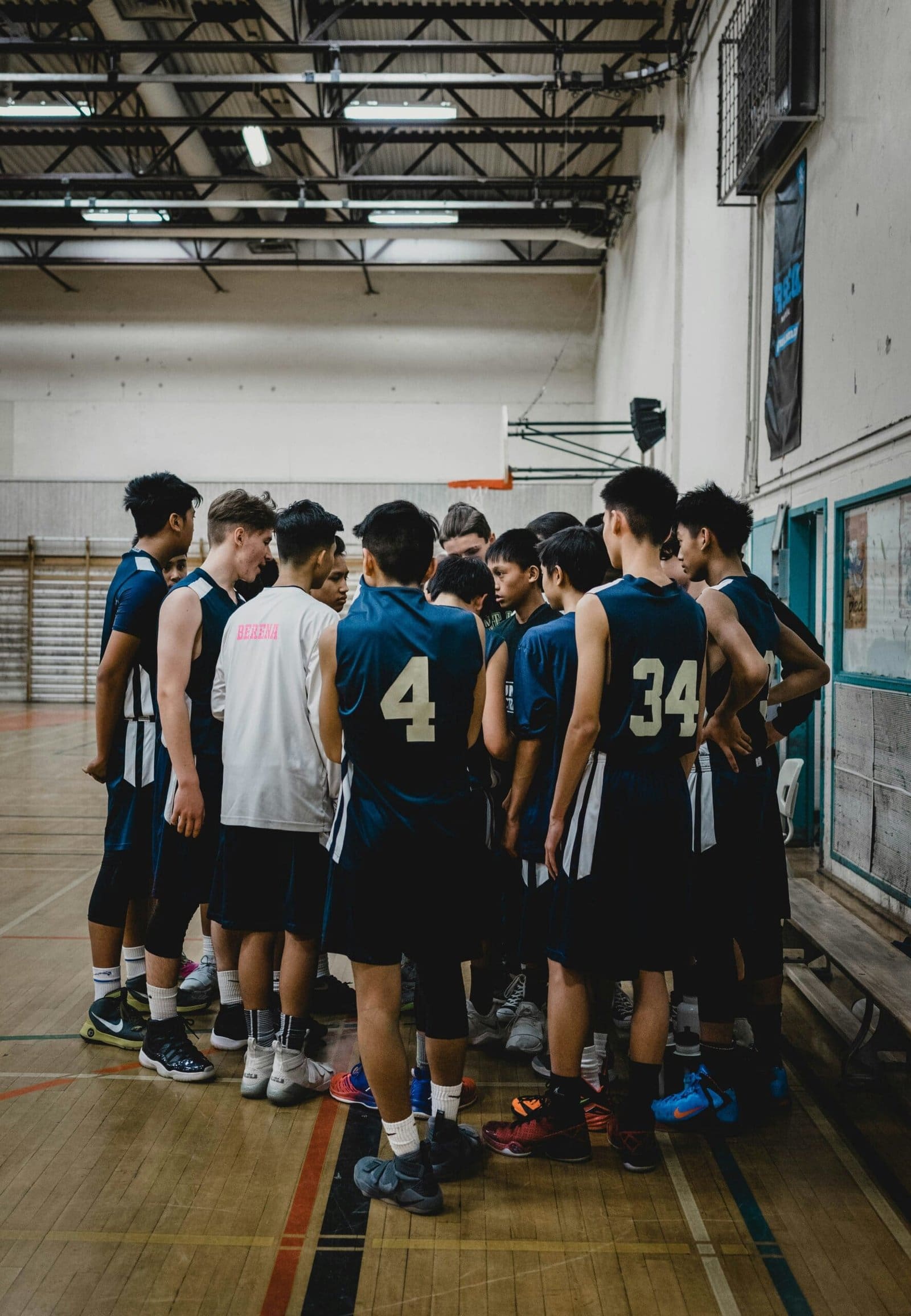Understanding the Challenges of Being a Student-Athlete

Being a student-athlete encompasses a unique set of challenges that combine the demands of both academics and sports. Student-athletes often face rigorous training schedules, which can include daily practices, weight training, and competition commitments. These physical demands require significant time and energy, leaving limited space for academic responsibilities. Many student-athletes must navigate this dual commitment, balancing long hours spent on the field or court with the necessity of attending lectures, completing assignments, and studying for exams.
In addition to the time constraints imposed by sports commitments, the academic expectations for student-athletes are equally high. Maintaining eligibility for participation in collegiate athletics often requires a minimum grade point average, increasing the pressure to perform well academically. As a result, student-athletes frequently experience time management issues as they attempt to juggle sports participation with academic demands. This can lead to stress and anxiety, particularly during peak competition seasons when the workload intensifies.
Moreover, the physical toll of strenuous training and competition can affect a student-athlete’s mental health, contributing to feelings of exhaustion and stress. Often, balancing the rigors of sports with coursework can lead to difficulties in maintaining proper focus and concentration on academic tasks. In some cases, student-athletes may struggle with their commitments, feeling overwhelmed by the need to excel in both arenas. This situation underlines the necessity for effective time management strategies tailored specifically for student-athletes, who must find a way to ensure both their academic and athletic success while prioritizing their well-being.
Time Management Skills for Student-Athletes

Time management is an essential skill for student-athletes, as they must balance rigorous academic workloads with demanding training and competition schedules. Recognizing the importance of effective time management can lead to improved performance in both academics and athletics, fostering a more fulfilling and successful experience during their time in school.
One practical method for mastering time management is the creation of a structured schedule. Student-athletes should set aside time each week to establish a consistent routine that details both their academic and athletic commitments. Utilizing tools such as digital calendars or planners can facilitate this process. With these tools, student-athletes can visualize their time, making it easier to allot specific blocks for studying, attending classes, training sessions, and competitions. By organizing their schedules effectively, student-athletes can reduce stress and ensure they dedicate appropriate time to all aspects of their lives.
Another key aspect of time management involves prioritizing tasks effectively. Student-athletes should identify high-priority assignments and commitments, allowing them to focus their energies where needed most. Creating a to-do list can be beneficial, as it aids in breaking down larger tasks into manageable parts. Once they have categorized their responsibilities, they can allocate time accordingly, ensuring that both academic and athletic obligations are met without overlap.
Moreover, student-athletes must remain open to adjustments in their schedules as conditions change. Flexibility is vital, as unforeseen events such as rescheduled practices or sudden academic deadlines can arise. Maintaining an adaptable mindset can enhance a student-athlete’s ability to cope with challenges and reduce the pressure of their workload. By implementing these practical time management strategies, student-athletes can achieve a harmonious balance between their sports and studies, paving the way for success in both arenas.
Effective Study Habits for Busy Lives

Balancing the rigorous demands of student life and athletic commitments can be challenging for student-athletes. To cultivate effective study habits that harmonize with their busy schedules, it is essential to employ techniques designed for efficient information retention and absorption. One highly effective method is active learning, which encourages engagement with the material. This can include techniques such as summarizing information in one’s own words, discussing topics with peers, or teaching concepts to others. By actively involving themselves in the learning process, student-athletes are more likely to grasp complex concepts and retain information for longer periods.
Furthermore, the practice of spaced repetition proves critical for improving memory retention. Rather than cramming before exams, student-athletes should schedule study sessions over a longer period. This method involves reviewing material at gradually increasing intervals, which has been shown to enhance long-term retention significantly. Utilizing flashcards or digital tools that support spaced repetition can streamline this process and integrate seamlessly into their busy lives, allowing for effective learning despite tight schedules.
In addition to these techniques, creating an optimal study environment is paramount. Student-athletes should find a quiet, distraction-free space conducive to focusing on their studies. It is beneficial to designate specific areas solely for studying, as this helps condition the brain to associate these locations with learning. Additionally, organizing study materials and maintaining a clutter-free space can further enhance concentration and productivity. As managing time becomes increasingly vital, establishing a structured routine that allocates specific hours for studying — perhaps right after practice or during breaks — can also support academic success.
By implementing these effective study habits tailored for their demanding schedules, student-athletes can maintain academic excellence while also excelling in their sports. The balance between academics and athletics is achievable through these focused and efficient approaches.
Communicating with Coaches and Professors

Effective communication is essential for student-athletes striving to maintain their academic performance while meeting the rigorous demands of their sports commitments. Building strong connections with both coaches and professors can facilitate a more manageable balance between athletics and academics. Initiating communication with professors about course requirements and potential conflicts with practice schedules is an important first step. By informing instructors of your dual commitments, you can set a foundation of understanding that may allow for flexibility in terms of assignment deadlines or exam scheduling.
When reaching out to professors, consider approaching them early in the semester. This proactive attitude demonstrates your commitment to academic excellence and helps establish a rapport. Utilize office hours as an opportunity to discuss the course material, clarify doubts, and express your dedication to succeeding in the class despite your athletic obligations. Additionally, leveraging technology, such as emails or course management systems, enables you to stay updated on important announcements and responsibilities while balancing your sports schedule.
Similarly, communication with coaches is equally vital. Being transparent about your academic pressures during peak seasons is crucial. Most coaches appreciate athletes who prioritize their education and will often support efforts to succeed in both realms. Initiate a dialogue about how your sporting commitments may impact your study schedule. This conversation establishes trust and allows coaches to accommodate your academic needs whenever possible. Furthermore, sharing your goals, both academic and athletic, helps coaches understand your aspirations and their interrelationship.
In essence, strong communication channels with both professors and coaches can immensely ease the pressures faced by student-athletes. By prioritizing transparency and proactive engagement, you can nurture a supportive environment that fosters both academic success and athletic excellence.
Leveraging Campus Resources for Academic Success

As a student-athlete, balancing the rigorous demands of academics and athletics can be challenging. However, various campus resources are specifically designed to support student-athletes in achieving academic success. Utilizing these resources effectively can greatly enhance both academic performance and personal well-being.
One of the most valuable resources available are tutoring services, which provide personalized assistance in subjects where students may struggle. These services can offer help with everything from understanding complex material to developing effective study strategies. Many universities also have study groups tailored to specific courses or subjects. Participating in these collaborative learning environments fosters peer-to-peer support, allowing student-athletes to benefit from diverse perspectives and study techniques.
Academic advising is another crucial resource that student-athletes should not overlook. Academic advisors can help in course selection, monitoring progress toward degree completion, and ensuring that student-athletes are meeting eligibility requirements. They can also assist in managing schedules to accommodate training and competition commitments. By maintaining regular contact with an academic advisor, student-athletes can stay informed about critical academic deadlines and resources available to them.
Furthermore, counseling services are essential for student-athletes managing stress and maintaining mental health. These services often provide workshops and one-on-one counseling sessions focused on managing the academic demands alongside athletic commitments. Mental resilience plays a significant role in academic success, and utilizing these resources can help student-athletes maintain a positive mindset and approach to their studies.
In summary, student-athletes have access to a variety of resources on campus that can significantly bolster their academic performance. By actively engaging with tutoring services, study groups, academic advising, and counseling, student-athletes can better navigate the challenges they face, allowing them to thrive both in their academic pursuits and athletic endeavors.
Developing a Support System Among Peers

As a student-athlete, balancing the demands of academics and athletics can often feel overwhelming. One effective strategy for managing these challenges is to develop a strong support system among peers. By fostering relationships with fellow student-athletes and classmates, you can create an environment that encourages collaboration, accountability, and academic success.
First and foremost, consider forming study groups with other student-athletes. These groups can provide an opportunity for shared study sessions, where you can tackle difficult subjects together and benefit from each other’s strengths. Whether you are preparing for an upcoming exam or working on a challenging project, the insights and support of your peers can significantly enhance your understanding of the material. Additionally, studying with others fosters a sense of camaraderie, which can alleviate stress and promote a more enjoyable academic experience.
Another vital component of a supportive peer network is accountability. Having friends who are aware of your academic commitments can motivate you to stay on track. When your peers understand the importance of maintaining good grades, they can encourage you to prioritize your studies, especially during the more demanding seasons of sport. Consider setting academic goals together; this will not only enhance your motivation but also create a sense of shared responsibility within your group.
Moreover, it is essential to openly communicate the common obstacles faced as student-athletes, such as time management or balancing commitments. By discussing these challenges with your peers, you can brainstorm solutions and share personal experiences, which can lead to finding effective strategies for overcoming hurdles. A strong support system among classmates and fellow athletes can significantly ease the pressure associated with juggling athletic and academic responsibilities, ultimately leading to improved performance in both areas.
Setting Realistic Goals and Expectations

For student-athletes, the pursuit of academic excellence and athletic success requires the establishment of realistic goals and expectations. Balancing these two demanding commitments can be challenging, hence the need for a structured approach to goal setting. By creating both short-term and long-term objectives, student-athletes can guide their efforts in a manner that is both motivating and manageable.
Short-term goals are essential as they provide immediate, achievable benchmarks that contribute to overall academic and athletic progress. For instance, a student-athlete could set a goal to complete all assignments for the week ahead of schedule or commit to attending 90% of practice sessions. These goals should be specific, measurable, attainable, relevant, and time-bound (SMART). By adhering to the SMART criteria, student-athletes can track their progress effectively and recognize the small victories that fuel motivation.
Long-term goals, on the other hand, serve as a broader vision for student-athletes’ academic and athletic careers. These may include aspirations such as maintaining a specific GPA by the end of the semester, achieving personal records in sports, or obtaining scholarships. It’s crucial that these long-term goals remain realistic and aligned with the student-athlete’s capabilities and resources. They serve as a reminder of the bigger picture and can encourage persistence in times of difficulty.
Establishing a balance between athletics and academics is not merely about hard work; it’s about understanding one’s limits and finding ways to manage time efficiently. By setting and regularly revisiting their goals, student-athletes can create a roadmap that prioritizes their commitments while allowing them to excel both on the field and in the classroom. Such strategies contribute significantly to their overall success and well-being.
Maintaining Physical and Mental Health

For student-athletes, the pursuit of excellence in both academics and sports often requires a delicate balance of physical, mental, and emotional well-being. Maintaining optimal health is crucial to achieve high performance in the classroom and on the athletic field. A strong correlation exists between one’s health and academic success; therefore, prioritizing nutrition, sleep, and mental well-being is paramount.
Nutrition plays a fundamental role in sustaining both physical energy and cognitive function. A well-balanced diet rich in fruits, vegetables, lean proteins, and whole grains provides the necessary nutrients to support rigorous training and studying. Hydration also plays an integral part in maintaining stamina, concentration, and mood stability. Student-athletes should focus on meal planning that accommodates their physical demands, ensuring they have proper fuel for practices, competitions, and study sessions.
Equally important is the aspect of sleep. A restorative sleep pattern enhances both learning and athletic performance. Consistently obtaining 7 to 9 hours of sleep each night allows for recovery from physical exertion and mental fatigue. Establishing a regular sleep schedule, creating a conducive sleep environment, and implementing relaxation techniques before bedtime can significantly improve overall health, combating stressors faced by student-athletes.
Mental well-being is another key component in the success of a student-athlete. Understanding time management, incorporating relaxation methods such as mindfulness and meditation, and seeking social support can help ease the pressures associated with academic and athletic commitments. Engaging in activities that foster relaxation can yield significant benefits, allowing for better focus and clearer thinking during both classes and training sessions.
By emphasizing nutrition, prioritizing sleep, and nurturing mental health, student-athletes can create a foundation for success that facilitates their journey towards achieving great grades while excelling in their sports pursuits.
Celebrating Achievements and Learning from Setback

Success in both academics and athletics is an integral component of the student-athlete experience. Recognizing and celebrating achievements in these areas is essential, as it fosters motivation and a sense of accomplishment. Whether it be receiving a commendable grade on an exam or excelling in a sporting event, acknowledging these milestones not only boosts confidence but also establishes a positive mindset for future endeavors. Celebrating these victories, big or small, is crucial for maintaining balance and enthusiasm as a student-athlete.
Conversely, setbacks are inevitable in any academic or athletic career. Failing to achieve a desired grade or experiencing a disappointing performance in a game can be disheartening. However, handling setbacks constructively is key to personal growth and resilience. It is important to view these experiences as learning opportunities rather than defining moments of failure. Analyzing what went wrong and seeking ways to improve are essential steps in developing skills and strategies that will contribute to future success. This reflective process can apply to both studies and sports, reinforcing the connection between the two realms of a student-athlete’s life.
Moreover, building resilience entails fostering a growth mindset. Emphasizing effort and persistence over innate ability can empower student-athletes to embrace challenges and take risks in both their academic and athletic pursuits. Engaging in open discussions with mentors, coaches, and peers can provide invaluable support, encouraging a culture where setbacks are seen as steppingstones rather than obstacles. Through this approach, student-athletes can cultivate tenacity and adaptability, leading to more meaningful achievements in their overall journey.

